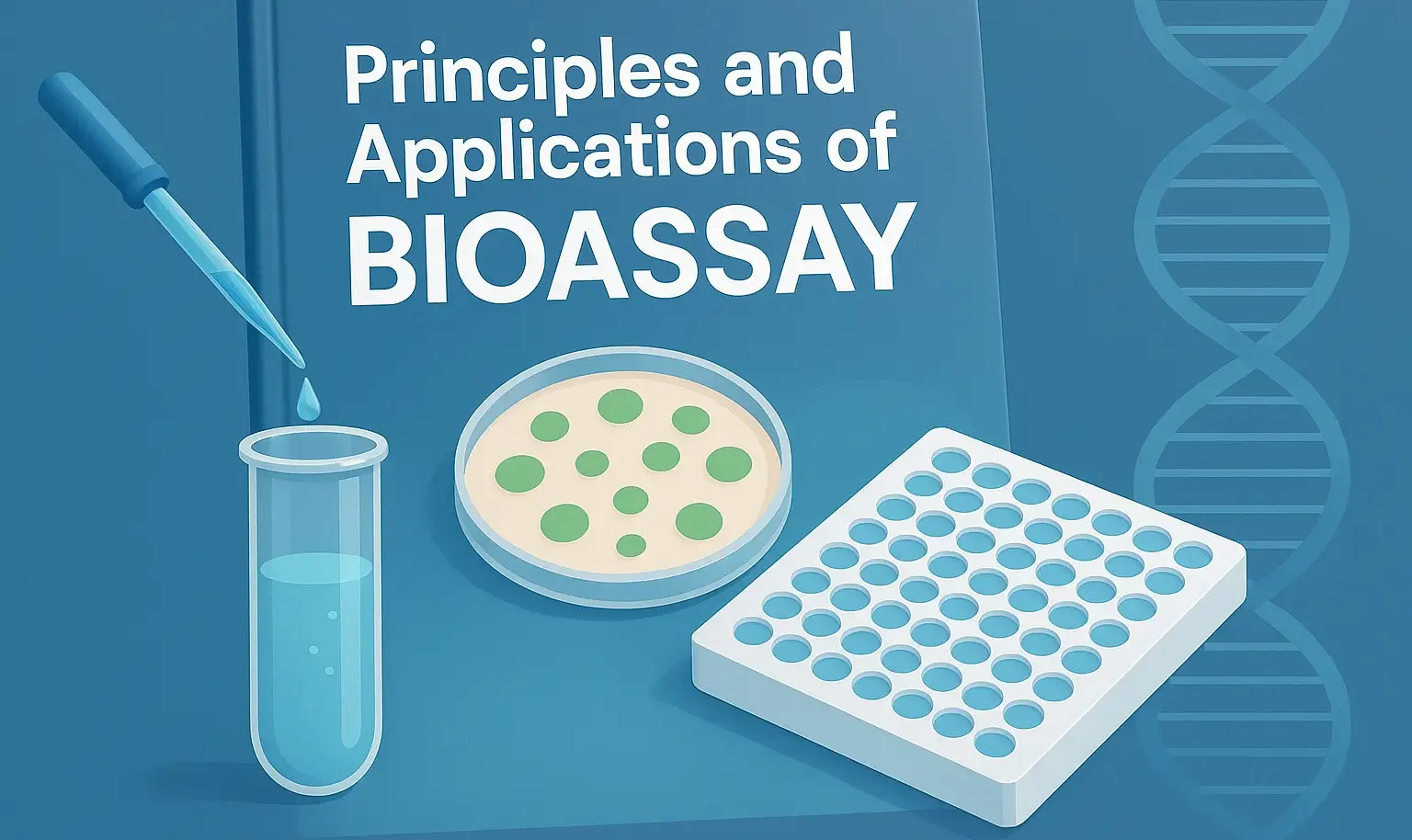- Principles and Applications of Bioassay: Involve comparing test samples with standards for potency.
- Principles and Applications of Bioassay: Used in drug development, toxicity testing, and quality control.
Bioassay
- Bioassays are analytical methods that use living organisms, cells, or biological systems to measure the concentration or potency of a substance, such as a hormone or drug.
- They are essential in pharmacology for ensuring the efficacy and safety of pharmaceutical agents.
Principles of Bioassay
- Biological Response: Bioassays rely on the measurable biological response elicited by a substance on a living system.
- Standardization: A known standard is used to calibrate the assay, allowing for comparison and quantification.
- Sensitivity and Specificity: The assay must be sensitive enough to detect low concentrations and specific to the substance of interest.
- Reproducibility: Consistent results must be achievable across different experiments and conditions.
- Dynamic Range: The assay should operate effectively within the concentration range relevant to the substance’s biological activity.
Applications of Bioassay
- Pharmaceutical Development: Determining the potency and dosage of drugs.
- Quality Control: Ensuring batch-to-batch consistency in pharmaceutical manufacturing.
- Clinical Diagnostics: Measuring hormone levels in patient samples for diagnosis and monitoring.
- Environmental Testing: Assessing the presence and concentration of biological contaminants.
Advertisements

